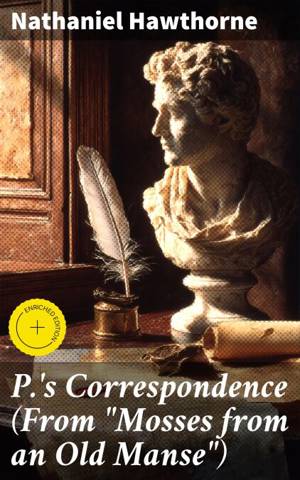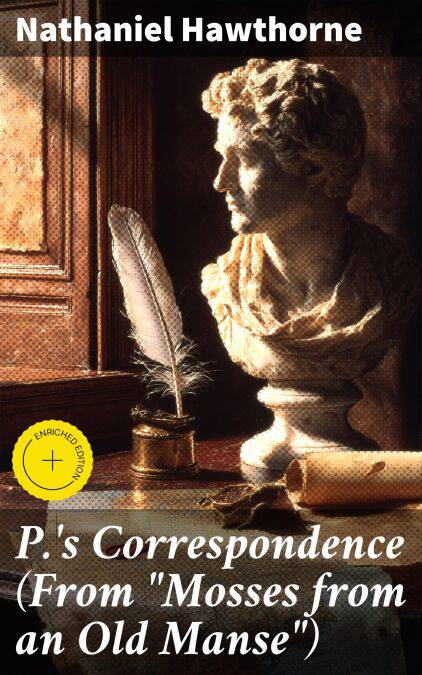
- Afhalen na 1 uur in een winkel met voorraad
- Gratis thuislevering in België vanaf € 30
- Ruim aanbod met 7 miljoen producten
- Afhalen na 1 uur in een winkel met voorraad
- Gratis thuislevering in België vanaf € 30
- Ruim aanbod met 7 miljoen producten
Zoeken
P.'s Correspondence (From "Mosses from an Old Manse") E-BOOK
Exploring Secrecy, Guilt, and Emotion in Literary Fiction
Nathaniel Hawthorne
E-book | Engels
€ 1,99
+ 1 punten
Omschrijving
In "P.'s Correspondence," part of Nathaniel Hawthorne's renowned collection "Mosses from an Old Manse," the author delves into the intricacies of human experience through a series of fictional letters that explore themes of morality, identity, and the tension between individual desire and societal expectation. Hawthorne's signature prose blends a deeply introspective narrative style with rich symbolism, encapsulating the Romantic literary tradition while navigating the puritanical ethos of early American society. This correspondence not only offers narrative depth but also serves as a commentary on the broader philosophical dilemmas of his time, reflecting the turmoil of transitioning American identities. Nathaniel Hawthorne, a key figure in American literature and a contemporary of the Transcendentalists, often grappled with issues of guilt, sin, and redemption in his works. His own lineage, steeped in Puritanism and shadowed by familial history, profoundly influenced his literature. This personal backdrop informs the thematic concerns in "P.'s Correspondence," as Hawthorne examines the complexities of character and moral choices against the backdrop of communal expectations, allowing readers to glimpse the author's introspections regarding his own societal position. Readers captivated by the delicate interplay of psychological and moral inquiry within the framework of early American life will find "P.'s Correspondence" to be an essential read. Hawthorne's eloquence not only invites reflection on the subtleties of human relationships but also extends an invitation to consider the deeper currents of thought that shaped his era. This work stands as a salient reminder of the timeless exploration of self within the collective narrative.
Specificaties
Betrokkenen
- Auteur(s):
- Uitgeverij:
Inhoud
- Aantal bladzijden:
- 114
- Taal:
- Engels
Eigenschappen
- Productcode (EAN):
- 4064066090463
- Verschijningsdatum:
- 15/03/2020
- Uitvoering:
- E-book
- Beveiligd met:
- Digital watermarking
- Formaat:
- ePub

Alleen bij Standaard Boekhandel
+ 1 punten op je klantenkaart van Standaard Boekhandel
Beoordelingen
We publiceren alleen reviews die voldoen aan de voorwaarden voor reviews. Bekijk onze voorwaarden voor reviews.








